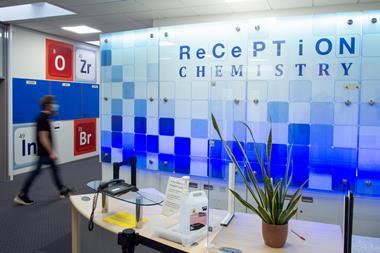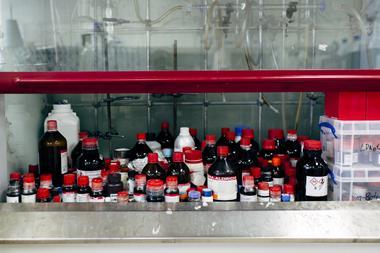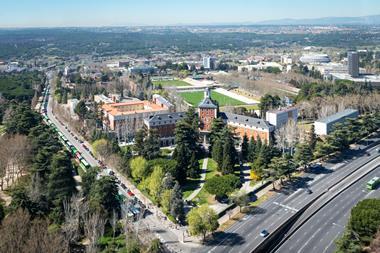As the Covid-19 pandemic crisis develops the UK is now on a lockdown that will force people to stay at home for at least three weeks. Universities across the country had mostly already ended face-to-face teaching and severely restricted visits to labs. Many labs have now closed altogether or are operating with a skeleton staff and as a result projects have been delayed or postponed.
This is a period of significant anxiety for [early career] staff and students
Tim Bradshaw, Russell Group
Alistair Jarvis, chief executive of Universities UK, notes that universities must continue ‘some essential services’ and cannot be fully locked down as some students may still be living on campuses and some areas of research cannot be left unmonitored. ‘Universities are particularly mindful of international students who are separated from friends and family, and may be unable to travel because of the pandemic. Universities will continue to do all they can to support those remaining on campuses and keep them safe.’
Protecting research
Umbrella funding body UK Research and Innovation (UKRI) is working closely with government and other funders to understand how to support the research community and protect R&D. It plans to continue paying grants as normal with no-cost extensions if necessary. It will also review its deadlines for awards and, if required, extend or reopen calls on a case-by-case basis. PhD students about to submit theses, but unable to complete work because of closures, will have submission dates extended with no penalties. UKRI also says that it is examining a range of options to limit disruption to the Research Excellence Framework.
We need some seriously creative and flexible thinking if we are to avoid having this crisis have a decades-long impact
Brian Patton, Strathclyde University
However, Tim Bradshaw, chief executive of the Russell Group, is concerned that UKRI’s actions are not sufficient. In a letter to UKRI on 18 March, he writes: ‘Staff on fixed-term contracts funded by UKRI’s councils, in particular early careers researchers and PhD candidates, will be reliant on UKRI funding over the coming months, even as their research is disrupted or staff are required to go on sick leave or enter self-isolation. This is a period of significant anxiety for these staff and students. Given the volume of research activity, our members are unlikely to be able to bridge these gaps on their own.’ Bradshaw has proposed an emergency fund run by UKRI which would cover staff salaries, stipends and other research costs.
‘UKRI is playing catch-up,’ says Brian Patton, a senior lecturer in physics at Strathclyde University. ‘The lack of a unified response from individual universities is also tying their hands. We need some seriously creative and flexible thinking if we are to avoid having this crisis have a decades-long impact on the careers of trainee and precarious staff.’
Patton’s lab, which focuses on interdisciplinary microscopy research, is completely closed. ‘There is no end-date given by the university and we are not going to seek permission for an access exemption. There are three PhD researchers reliant on access to the lab for long-term project work. We have interim work that can be done – some data analysis, programming of hardware for future experiments – but there’s only so much we can put in the pipeline for an experimental group without access to the lab. Even things like programming will need physical access to the hardware for debugging and testing. This cannot be done remotely. It’s not sustainable in the long-term.’
Ben Britton, senior lecturer in the department of materials at Imperial College, London, also has no campus access except in an emergency. ‘Our group are all now working from home, following campus closure. We have started to use more online collaboration tools and have increased some activities, for example a journal club to keep us in contact.’ In the absence of new experimental data the team is writing up existing work, developing analysis tools, as well as writing literature reviews.
‘We have already started contingency project planning for some projects to consider what computational and analysis approaches can be undertaken,’ Britton adds. ‘A long-term shut-down – beyond a couple of months – will significantly impact project progression.’ The biggest risk, he says, is to the staff base and project pipeline. ‘This will impact vulnerable researchers, for example those on temporary contracts, early career and those changing roles.’
Lee Cronin, Regius Chair of chemistry at the University of Glasgow, has 65 people in his research group. He has a few people going into the lab to check on machines that have been left running and is hoping to keep the impact of the closure to a minimum. ‘Researchers and students are worried about the impact on their careers or PhDs. Everyone should slow down, and hopefully policymakers will extend all grants and studentships.’
Distance learning
As all universities have now moved to remote teaching, students will have to accept a different style of education. ‘It is difficult to assess the longer term learning outcomes at this stage,’ Britton says. For science subjects, lab work presents a huge challenge for remote learning. However, Britton says he is already seeing cooperation between academics to develop opportunities for sharing virtual experiments and datasets to support students.
I tell my students to go away and think, and find some interesting questions
Lee Cronin, University of Glasgow
While Patton agrees that online teaching can be ‘fantastic’, the speed at which it needs to be delivered at the moment means compromises are being made. ‘This needs to be taken into account when we are looking back to judge the quality of online teaching methods. People are trying hard and genuinely doing their best, but we’re going to make mistakes.’
Meanwhile, Cronin, who plans to finish his scheduled lectures remotely, is relaxed about the impact on students. ‘We used to call it “reading” for a degree for a reason. This is a great excuse to stop going on about the number of lectures and tutorials. I tell my students to go away and think, and find some interesting questions, and come up with some virtual research projects.’
However, he acknowledges that students are stressed, particularly final year students. He says that as long as decisions are implemented fairly and uniformly across the sector, the impact can be minimised. ‘This is not a big deal. There will be ways around all our problems in higher education. What is a big deal is people ignoring advice to stay in and putting [National Health Service] workers at risk. There are much more important issues at play here.’












No comments yet